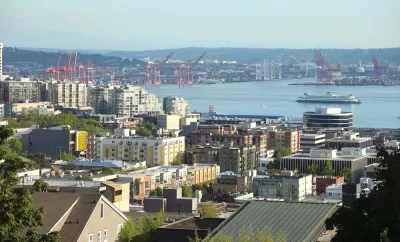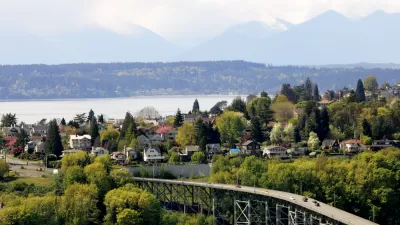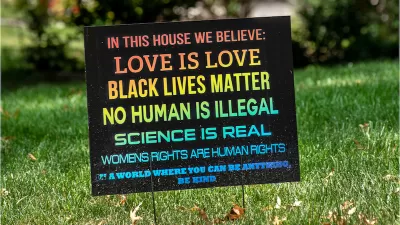State and local lawmakers hope that recent reforms to the Washington State Environmental Policy Act are only an initial step toward ending the law's use as a tool for delaying affordable housing plans.

Josh Cohen revisits the year in housing construction in Seattle for lessons on the effects of Washington's State Environmental Policy Act (SEPA). In 2019, according to the article, a number of long-delayed housing plans finally came to fruition:
In March, more than two years after legislation was first introduced, the Seattle City Council unanimously passed the centerpiece of its housing solution: citywide Mandatory Housing Affordability (MHA) upzones that require for-profit developers to build subsidized housing or pay into Seattle’s affordable housing fund. In June, the council voted unanimously to build at least 235 units of low-income housing at the decommissioned Fort Lawton site in Magnolia, 13 years after the process began. In July, after four years of delay, the council again voted unanimously to ease regulations on backyard cottages and basement apartments in an effort to incentivize their construction.
Instead of blaming the delays to those plans on the "Seattle process," Cohen pins responsibility on SEPA, which gives individuals "gives individuals tremendous power to slow down or stop land-use changes," according to Cohen.
Given the growing housing affordability challenges facing Seattle and other cities in the state, lawmakers at both the local and state levels are "working to reform the nearly 40-year-old environmental law and limit its power," reports Cohen. Some reforms have already been approved, as part of a housing density bill approved by the Washington State Legislature in 2019.
"The heart of the new law is a menu of things Washington cities can do to increase density, such as allowing backyard cottages in single family zones; allowing duplexes and triplexes in single family zones; and allowing larger buildings near transit hubs," explains Cohen. "In exchange for doing them, the cities are eligible for a $100,000 grant to help with planning. And, importantly, the law makes all of those actions exempt from SEPA appeal."
The city of Seattle also recently adopted a new law intended to "streamline" the SEPA process, even attaining political support from environmental groups like the Sierra Club’s Seattle Group, 350 Seattle, Futurewise and Climate Solutions on the way to approval.
FULL STORY: State environmental law slowed housing construction in Seattle. Lawmakers want to pick up the pace

Alabama: Trump Terminates Settlements for Black Communities Harmed By Raw Sewage
Trump deemed the landmark civil rights agreement “illegal DEI and environmental justice policy.”

Study: Maui’s Plan to Convert Vacation Rentals to Long-Term Housing Could Cause Nearly $1 Billion Economic Loss
The plan would reduce visitor accommodation by 25% resulting in 1,900 jobs lost.

Planetizen Federal Action Tracker
A weekly monitor of how Trump’s orders and actions are impacting planners and planning in America.

Wind Energy on the Rise Despite Federal Policy Reversal
The Trump administration is revoking federal support for renewable energy, but demand for new projects continues unabated.

Passengers Flock to Caltrain After Electrification
The new electric trains are running faster and more reliably, leading to strong ridership growth on the Bay Area rail system.

Texas Churches Rally Behind ‘Yes in God’s Back Yard’ Legislation
Religious leaders want the state to reduce zoning regulations to streamline leasing church-owned land to housing developers.
Urban Design for Planners 1: Software Tools
This six-course series explores essential urban design concepts using open source software and equips planners with the tools they need to participate fully in the urban design process.
Planning for Universal Design
Learn the tools for implementing Universal Design in planning regulations.
Caltrans
Smith Gee Studio
Institute for Housing and Urban Development Studies (IHS)
City of Grandview
Harvard GSD Executive Education
Toledo-Lucas County Plan Commissions
Salt Lake City
NYU Wagner Graduate School of Public Service




























